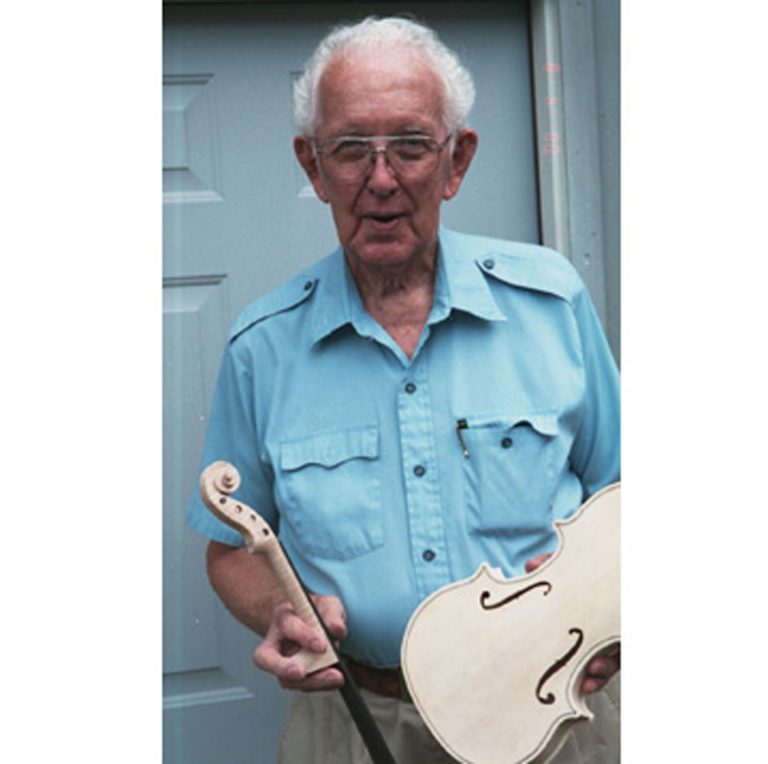Dewey Alexander was born in Lawrence County in 1924 into a family of farmers. He worked initially running a dragline in quite a few locations, with interruptions for service in the army during World War II and the Korean War. He wanted to stay home around Foxworth after that and took on work as a mechanic, initially for auto dealers, but eventually with his own shop. “I got too poor to leave, so I stayed here from then on.” He started making violins about thirty years ago and turned full time to this activity after becoming disabled around the age of 60.
He started building instruments after enjoying dances held in people’s houses when he was young, dances at which a fiddler and guitarist would play. He held a violin and was hooked–he really wanted one. The problem was that “I never could afford a good one, and I’ve never been able to settle for junk.” He bought and borrowed book after book on the history and especially on the construction of violins: “Any time three people would agree on something, I’d take it as pretty well right.” He dissembled and reassembled an older violin, then could not stop.
He makes most of his own tools, mostly an incredible array of small, very sharp carving or planing devices. Although he usually sticks to the usual woods, that is, spruce for the tops and maple for the bodies and necks, he has also employed local woods such as walnut, sassafras, and even cherry. He has seen thousands of Stradivarius copies, some that were “an awful-looking mess” on the underside of the top, where a purchaser cannot see. His own fiddles are clean, meticulously constructed at every step, with “tap-tuned” tops and backs. Much of his effort starts where the companies that make the factory fiddles stop, in great care in every aspect of construction.
He used to join with fiddler Bill Rogers to give workshops at bluegrass festivals but travels less now. His shop is full of beautiful instruments, resonant violins, and violas, a few lap dulcimers, a guitar, a banjo. Alexander believes that he has made eight dobros, 26 mandolins, and perhaps 130 fiddles. He does not make much money doing this but has always loved to carve, and he has got a lot of wood he intends to work with. He orders the spruce and maple and is still working with the wood from a walnut tree a friend cut down years ago to make room for a house.
When Alexander makes a violin, he tries for a balanced sound, as good on the lowest string as the highest. They have a bright and rich sound and are easy to play. His violas are similarly strong from top to bottom of their range. Bluegrass fiddler Bill Rogers has one of each. Mr. Alexander plays a bit himself and sometimes participates in jam sessions in his showroom. Why does he concentrate on building fiddles rather than playing? His answer is simple: “I got addicted to it. Every piece of wood is different–getting a sound out of it.”
–Chris Goertzen

